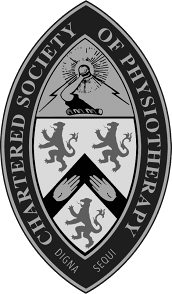Mr Scott Walker MSc (Physio) MSc (S&C) MCSP
Physiotherapist
Recommendations for Mr Walker
These recommendations are for information purposes only. Doctors providing recommendations do so in good faith and are not responsible for clinical outcomes.






Recommended by:
About Mr Scott Walker
HCPC number: PH108342
Year qualified: 2001
Place of primary qualification: University of Sydney
Scott is a Physiotherapist at Pure Sports Medicine in the Greater London area. He also works a Physiotherapist at Chelsea Football Club, and has earlier worked with Barnet Enfield and Haringey Mental Health NHS Trust and London North West Healthcare NHS Trust. He has worked within the sports science and medicine departments in football clubs within English Premiership, Championship, Football Leagues, Conference Premier, and Women's Super and Premier Leagues, as well as with rugby union and Touch rugby players, netballers, power lifters and general population clients seeking to improve their everyday performance. His clients have included Brighton & Hove Albion Football Club—Women and Girls, Physio Science UK, Watford Ladies Development squad, Cambridge United Football Club, Barnet Football Club, Brentford Football Club, Leicester City Football Club, Queens Park Rangers F.C. and an Olympic (Sochi 2014) downhill skier.
His clinical interests include shoulder, sports injuries, knee, tendinopathy, spinal mechanics and persistent pain. His sporting interests include football, rugby, cricket, racket sports and gym training. He has specialist knowledge in musculoskeletal assessment and exercise program prescription for rehabilitation and athletic performance. His unique experience and qualifications allow him to combine injury prevention and rehabiliatation with elite performance development across a full spectrum of clients to optimise human performance within their genetic and pathophysiological constraints.
Thanks to his extensive studies and diversified experience, Scott possesses comprehensive knowledge of how human anatomy, biomechanics, physiology and psychology relate to sporting and everyday functional performance. He graduated in ‘Applied Science, Exercise and Sports Medicine’ from the University of Sydney in 2001. He completed his Master of Science (M.Sc.) in ‘Strength and Conditioning’ from the Middlesex University in 2010 and followed it up with an M.Sc. in Physiotherapy from King’s College London in 2015.
Through his work, education and personal study, Scott has developed a passion for optimising human performance and wellbeing. He is acknowledged in his peer group for his academic writing and presentation skills. He writes a blog on human physical, psychological and emotional performance optimisation on
http://physiostrength.club
Scott has developed an online and app based fitness and wellness program called the Strong Body Strong Mind Challenge
Areas of expertise
- Athlete development
- Athletic performance
- Athletic training
- Cardiovascular fitness
- Core strength
- Exercise physiology
- Fitness
- Fitness training
- Flexibility training
- Functional training
- Injury prevention
- Knee
- Muscular endurance
- Musculoskeletal disorders
- Musculoskeletal injuries
- Musculoskeletal physiotherapy
- Orthopedic rehabilitation
- Periodization
- Persistent pain
- Personal training
- Physical therapy
- Rehabilitation
- Shoulder
- Spinal mechanics
- Sports
- Sports coaching
- Sports injuries
- Sports nutrition
- Sports science
- Strength & conditioning
- Strength training
- Tendinopathy
- Vocational rehabilitation
- Weight training
Frequently asked questions
What are the common symptoms that your patients tend to present with?
Most patients who present for musculoskeletal physiotherapy have or had sort of pain, discomfort or irritation in one or more of joints. The most common areas of the body that are affect tend to be spinal (neck, upper back or lower back pain), shoulders, elbow, hips, knees, ankle or repetitive strain injuries in their hands, thumbs or finger.
Other symptoms patient commonly present with are swelling, stiffness, instability, pins and needles, and numbness or changes in sensation.
These pains and symptoms can be acute (from one to several days) such as fracture, muscle strain or spasms, ligament strains and stiff spines. Others may have had these symptoms for many years and there is no healing process occurring.
The causes of these symptoms can range from accidents or traumatic injuries whilst playing sport or in their usual daily activities, to overuse injuries such as tendinopathy (tendinitis), or they may be as a result of an orthopaedic or neurological operation.
To determine the genuine cause of these symptoms requires a thorough diagnostic procedure that is led by their subjective history that correlates with a comprehensive objective assessment from which a working diagnosis and then a treatment plan that will involve a period of treatment, frequency of treatment and modalities that we are going to choose to hopefully return them to their chosen sport or activities that they need to perform throughout their day.
My role is to provide my patients with a greater understanding of the causes and pathology to allow them to be motivated to undertake a holistic, comprehensive rehabilitation program that transitions into building greater resilience and the tools to help prevent a reoccurrence of their presenting condition or any other issues that may arise as a result of what I find on examination.
What are the treatments that you're able to offer your patients?
The patient’s initial concern is getting a diagnosis and, alongside that, reassurance that there is something that can be done to help them, so that goes a long way to decreasing their suffering. I make a diagnosis based on subjective history and an objective assessment. If I am unsure of the diagnosis, want a bit more information through images, a second opinion, and/or the patient is not progressing as anticipated then there is an easy referral pathway to Sports Medicine doctors.
My treatments invariably have a multi-model approach that may incorporates, hand-on manual therapy like soft tissue release, mobilisations and manipulation joints; a progressive, periodised exercise programme that incorporates all parts of neuromuscular function; and education about the patient’s condition and what lifestyle changes they can make to help themselves. Alongside these fundamentals, are adjuncts like strapping and taping.
I work within a multi-disciplinary team so, alongside our physiotherapy session, I can easily refer my patient to other professionals who can aid with their recover and on-going management of their conditions such as soft tissue therapy, podiatry, strength and conditioning, and nutritionist.
What are your areas of sub-specialist interest?
Having worked extensively in football, I see a lot of acute lower limb injuries, predominantly knees and ankles. With most lower limb injuries contributing factors are likely imbalances or dysfunctions along the whole limb so my focus of treatment may not be local to the pain.
A lot of lot people lead busy, active lives so I see many overuse injuries, especially tendinopathies and other tissues overloading or irritations, predominantly shoulders, Achilles, around the knee, hip, thumb and elbow.
Neck, upper and lower back pain are very common. These issues are often caused my imbalances and movement control issues around the spine.
Often, these pains can go on for month or years, be multi-factorial, and with that, come its own challenges to treat. My NHS experience gave me broad exposure to these conditions.
Professional memberships















